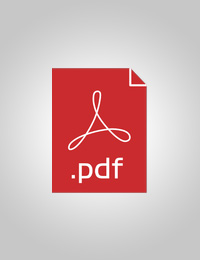
Final Evaluation of Country Programme Document for Thailand 2017 – 2021
UNDP Thailand’s current Country Programme Document (CPD) (2017-2021) is ending in 2021. The CPD evaluation has been commissioned by the UNDP Country office to inform the development of its next CPD for the period 2022-2026. The evaluation aims to take stock of the progress and performance of the current CPD and to generate evidence and knowledge about the programme. The results from the evaluation will be used to inform decision-making, course correction and development of the new CPD. Thailand is in the process of developing the country to be an innovation-driven and value-based economy by 2036. To achieve more inclusive and sustainable development growth, the country needs to tackle several key challenges, including inequality and regional poverty, vulnerability to climate and disaster risks, environmental degradation, lack of good governance and social exclusion, and innovation deficiency. Thailand is also one of Southeast Asia’s hardest hit country by COVID-19, despite its marked success in controlling the outbreak.
The current CPD is the continuation of long-standing development collaboration between the Royal Thai Government and UNDP. It was formulated in consultation with the relevant stakeholders and efforts were made to make it fully consistent and aligned with Thailand’s long and short-term national visions, goals and plans. The CPD draws its mandate from the United Nations Partnership Agreement Framework (2017-2021) for Thailand and contributes to its broader outcome. The CPD consists of a total of 10 outputs, which fall under two main thematic areas: a) Promoting anti-corruption, inclusive engagement, and social cohesion (Outputs 1-4) and b) Promoting green and inclusive growth (Outputs 5-10).
The CPD evaluation exercise was conducted in accordance with UNDP Evaluation Guidelines (2019) and United Nations Evaluation Group (UNEG) norms and standards. The evaluation process consisted of five standard evaluation steps: 1) Evaluation Questions, 2) Evaluation Design, 3) Data Collection Methods, 4) Data Analysis and 5) Presentation and Reporting. The evaluation used the standard criteria of Relevance, Effectiveness, Efficiency and Sustainability to assess the overall CPD progress and performance, including the cross cutting themes of gender equality and human rights. The key findings of this evaluation reflect that UNDP is very well positioned as a development partner in the overall development sphere in Thailand. UNDP’s reputation and its positioning has greatly helped in building strong and long-term partnerships with all stakeholders. Collaboration among stakeholders during CPD initiatives implementation remained appropriate and fruitful. Most of the large scale CPD implementation partnerships pertained to national level ministries and governmental institutions. However, collaboration with local civil society organizations and community groups, including vulnerable groups was found to be a bit limited, spontaneous, and short term. The Monitoring and Evaluation functions at the CO level remained limited in scope and capacities and a comprehensive M&E framework and plan for CPD was lacking. Overall M&E functions remained limited to internal progress reporting and Mid Term Review.
Output 1.1.1 Capacities developed across the whole of government to integrate the 2030 Agenda, the Paris Agreement and other international agreements in development plans and budgets, and to analyse progress towards the SDGs, using innovative and data-driven solutions
Goal 12. Ensure sustainable consumption and production patterns
Goal 16. Promote peaceful and inclusive societies for sustainable development, provide access to justice for all and build effective, accountable and inclusive institutions at all levels
12.7 Promote public procurement practices that are sustainable, in accordance with national policies and priorities
16.5 Substantially reduce corruption and bribery in all their forms
16.6 Develop effective, accountable and transparent institutions at all levels
1: Governance
2: Others



Consultants submitted the final report since July. But the report is still under review of IEO and we expect it will be endorsed and approved by the end of August and no later than September 2021.